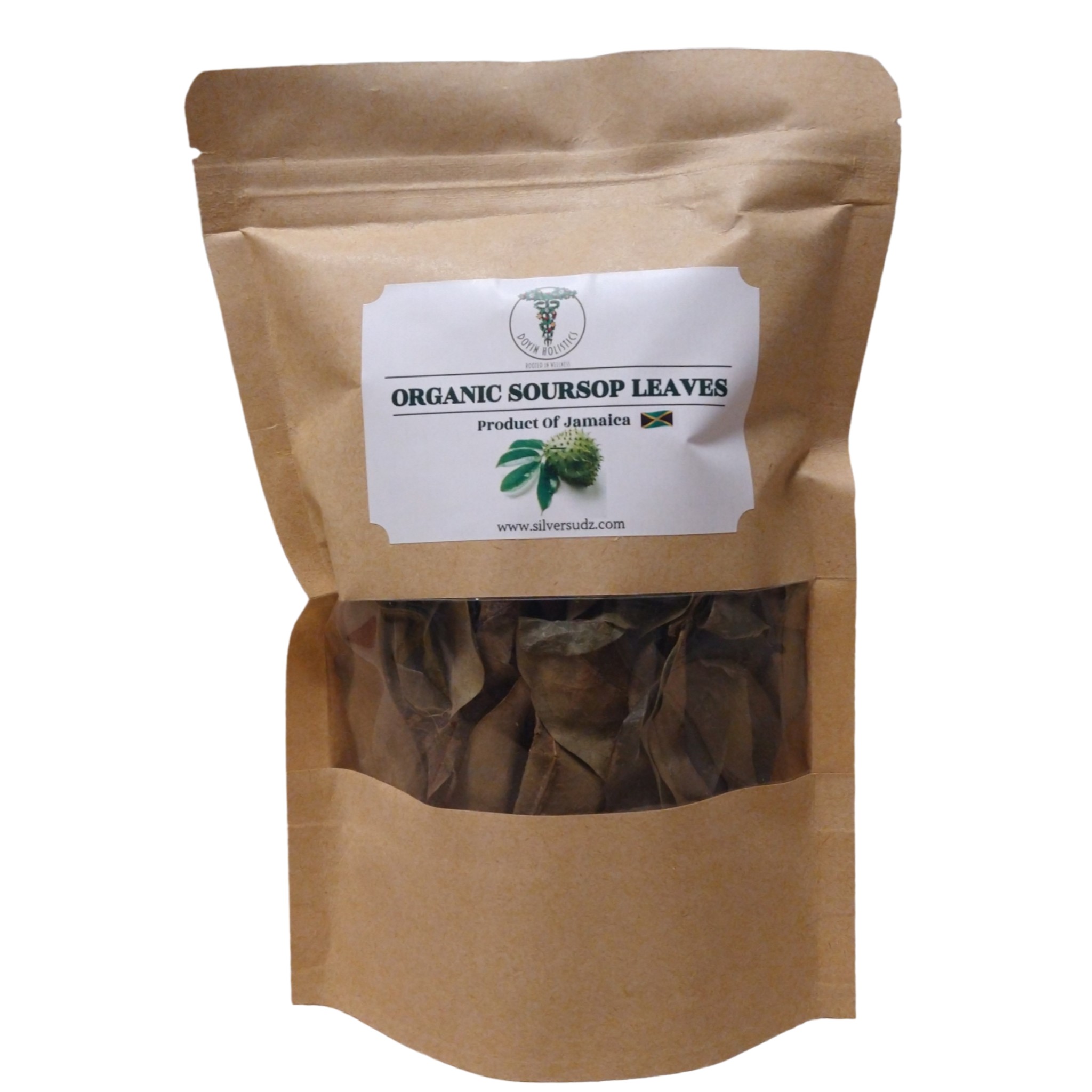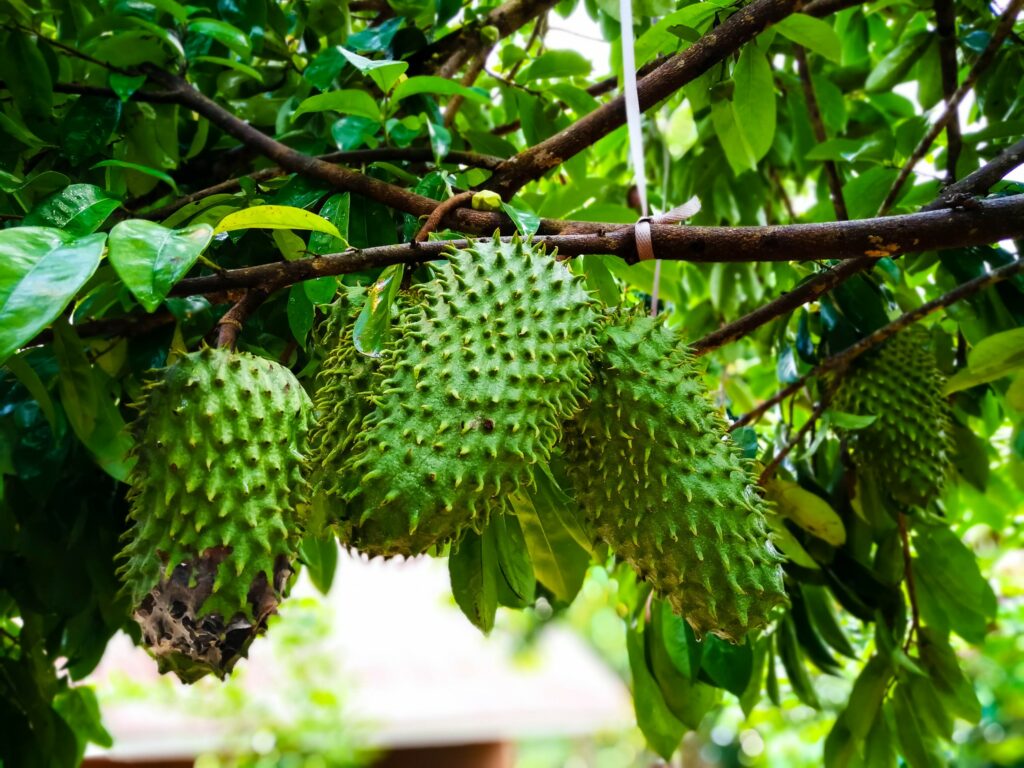Graviola is promoted as an alternative cancer treatment. There is reliable evidence that graviola works as a treatment for cancer.
- Graviola is the fruit from trees in the rain forests.
- Claims that graviola can treat cancer are backed up by research.
- Research has mainly been laboratory research and there is little known about the side effects it might cause. This research has looked at the fruit, stem, leaves and seeds.
What is graviola (soursop)?
Graviola comes from a tree in the rain forests of Africa, South America, and Southeast Asia. It is a common food there.
Its scientific name is Annona muricata. It is also known as:
- soursop
- guanabana
- brazilian paw paw
The active ingredient is a type of plant compound (phytochemical) called annonaceous acetogenins.
People use graviola pulp in juices, smoothies and ice cream.
Why people with cancer use it
People in Africa and South America use the bark, leaves, root, and fruits of the graviola tree to treat:
- infections with viruses or parasites
- rheumatism
- arthritis
- depression
- sickness
We know from research that some graviola extracts can help to treat these conditions.
In laboratory studies, graviola extracts can kill some types of liver and breast cancer cells. These cells are resistant to some chemotherapy drugs. A more recent study showed that graviola pulp extract has an effect on prostate cancer cells in mice. But there have not been any studies in humans.
A 2018 review found that graviola can be used as a chemo preventive agent. This means it stops cancer from happening. It has also been found to be effective against many cancers. However, these were laboratory studies and not human trials.
Side effects
Studies on animals found that graviola may lower blood sugar and blood pressure. Talk to your doctor first before taking graviola if you have diabetes or high blood pressure. Graviola may also cause damage to your kidneys and liver if taken frequently.
It is unlikely that drinks or foods containing graviola could harm you when taken as part of a normal diet.
Talk to your doctor before taking any kind of complementary or alternative therapy.
Cancer Fighting Properties
Soursop contains more than 200 phytochemicals, which are compounds that are known to have anticancer effects. Research also shows that soursop has natural cytotoxicity effects. For cancer patients, chemotherapy and radiation therapy are cytotoxic therapies (meaning they kill cancer cells). Studies show that the fruit also has an ability to reduce the cell growth on a number of cancer cell lines. This includes breast, lung, pancreatic, prostate, ovarian, and colorectal cancers.
Breast Cancer
Breast cancer is known as the most frequently diagnosed cancer and the second leading cause of cancer deaths in women.
In a study in mice, researchers found that the leaves from soursop showed an anticancer effect on breast cancer cell lines. Studies have also shown that extracts from soursop can aid in destroying cells that are resistant to specific chemotherapy drugs.
Prostate Cancer
Prostate cancer is the second leading cause of cancer death in men. A recent study showed that soursop has an anticancer effect on prostate cancer cells in mice.
Colorectal Cancer
Colorectal cancer is the third leading cause of cancer related deaths. The leaf extract of soursop has showed anticancer properties against a cell line, restricting of migration, and cytotoxicity against certain cells.
Pancreatic Cancer
Pancreatic cancer is the fourth leading cause of cancer related deaths. Studies show that pancreatic tumors are resistant to conventional chemotherapies and radiotherapies. Many diagnoses are already in the advanced stages because the disease often presents with no specific early clinical symptoms.
Statistics predict a possible 55% increase in new pancreatic cancer cases by 2030. Studies reported soursop extract has promising characteristics for pancreatic cancer therapeutics due to its antitumorigenic characteristics, which show that soursop extract resulted in pancreatic cancer cell death and necrosis.
Overall, although soursop has agents that can help protect against certain cancer cells, more research needs to be conducted to get a clearer answer regarding whether it can work as a cancer treatment on its own in humans.
Other Benefits
Soursop has many properties, including anti inflammatory, antioxidant, and antibacterial agents that may help treat certain ailments. In many countries, it is used as a traditional remedy, where the fruit is used for ailments such as lice, fever, edema, coughs, blood cleansing, arthritis, depression, parasites, asthma, and inflammation.
People with fibromyalgia suffer from pain all over the body, which affects their quality of life. Since it is a lifelong condition, scientists continue to find ways on how to manage the condition or reduce its symptoms. A team of researchers from the University of Seville in Spain reports that diets supplemented with aqueous extract of soursop (Annona muricata L.) leaves can prevent the symptoms of fibromyalgia. This, in turn, improves the quality of lives of people with fibromyalgia.
In the U.S., fibromyalgia affects nearly four million adults. People with this condition are sensitive to pain. In addition to pain, people with fibromyalgia may experience fatigue and tiredness, depression and anxiety, sleeping difficulties, difficult thinking, recalling memory, and concentrating, and headaches — all of which are the most common symptoms of the condition.
For the study, the research team aimed to determine the effect of consuming soursop leaf extracts on mice with fibromyalgia. To do this, they got 60 five week old female rats and divided them into six groups. They fed the rats with a standard diet combined with different doses of an aqueous extract soursop leaf extract supplement for a period of four weeks.
The plant and leaves are typically used for medicinal uses. In traditional medicine, they are used to treat inflammation, pain, infections, diabetes, and cancer. These medicinal uses have been validated through preclinical trials. (Related: Soursop Leaves Tea- Fight Cancer, Treat Type 2 Diabetes, Great Diuretic And More.)
Soursop leaf extracts help fight against breast cancer
Soursop leaf extracts have been found to be effective against cancer. In 2018, researchers from Seoul National University (SNU) in South Korea reported that extracts from soursop leaf have anti-cancer effects.
For their study published in the journal Evidence-Based Complementary and Alternative Medicine, they looked at the anticancer properties of soursop leaf extracts on breast cancer cells. The Korean researchers used a methanol processed solution to identify and count the phytochemicals in the extract.
For the experiment, the researchers cultivated two different cell lines: MCF-7 line and MDA-MB-231 line. The researchers used the MCF-7 cell line for the control group. This line is composed of breast cancer cells that were tested positive for estrogen receptor biomarkers. On the other hand, the latter line is a triple negative breast cancer cells’ strain, which served as the treatment group. They applied soursop leaf extract on both cancer cell cultures and carried out various tests to determine the individual properties of the extract.
Based on the results of the study, the researchers found that soursop leaf extract was toxic against both breast cancer cell cultures. The extract decreased the viability of the cells and suppressed the growth of the cancer cells. Soursop leaf extract also prevented the motility of the breast cancer cells, limiting their ability to harm healthy cells. In addition, the extract hampered the healing of the wounded carcinoma. Additionally, they found that as they increased the dose of the extract, its toxicity against the cancer cells also increased, as well as its effects on the cell motility.
The results also revealed that soursop leaf extract used various ways to cause cell death in both cultures. For the MCF-7 cell line, it utilized the estrogen receptors to trigger and enhance the self-destruct sequence. For the MDA-MB-231 line, it attacked the mitochondria and damaged the DNA of cancer cells to trigger cell death.
References:
https://www.ncbi.nlm.nih.gov/pmc/articles/PMC9256652/
https://www.alphagalileo.org/en-gb/Item-Display/ItemId/171413?
returnurl=https://www.alphagalileo.org/en-gb/Item-
Display/ItemId/171413https://www.journalarrb.com/index.php/ARRB/article/view/26602







